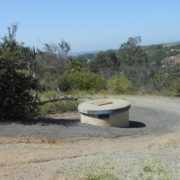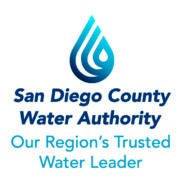A major water pipeline that runs through rural North County is getting the water industry’s version of a makeover.
The San Diego County Water Authority plans to start relining one of its regional wholesale water pipelines in fall 2018, extending its service life by more than 75 years. Construction is expected to last about one year, and most of the $24 million project will take place underground with few impacts to nearby residents.
Relining projects rehabilitate segments of pipelines based on their age and the need for improvements. Proactive assessments help the Water Authority avoid pipeline failures by identifying potential risks before they cause problems.
The Pipeline 5 Relining Project involves upgrading approximately 2.3 miles of pipeline in eight segments along a 9.5-mile stretch of pipeline that runs through Fallbrook. The Water Authority’s project team hosted an open house for residents and answered their questions at the Fallbrook Library on May 1.
Additional community presentations are set for May 21 at the Bonsall Chamber of Commerce, May 22 at the Rainbow Municipal Water District’s Board of Directors meeting, and the Fallbrook Chamber of Commerce, and June 18 at the Fallbrook Planning Group.
Relining effort saves money
The Water Authority manages 310 miles of large-diameter pipeline to convey water throughout San Diego County. Approximately 82 miles of these pipelines were installed between the early 1960s and late 1980s. These pre-stressed concrete cylinder pipes (PCCP) are made from a combination of steel and concrete.
First used during World War II to help minimize the use of steel, this pipeline type is used extensively around the world. Numerous failures in similar pipes nationwide prompted the Water Authority to take proactive measures to reinforce its PCCP pipelines with steel liners starting in the early 1990s.
Proactive assessments help the Water Authority avoid pipeline failures by identifying potential risks before they cause problems. To date, the Asset Management Program has saved water ratepayers more than $200 million by prioritizing repairs, avoiding unnecessary work and maximizing the service life of the region’s large-diameter water conveyance system, which includes pipelines ranging in diameter from 20 inches to 9 feet.
Fallbrook work mostly underground
Water Authority construction crews will conduct most of the work underground, inside the pipe. They will access the pipe by excavating, establishing, and entering the pipeline through nine access sites, or portals. The portals are excavated pits 25-feet wide by 60-feet long and spaced roughly 525 to 2,500 feet apart. At each portal site, 40 feet of existing pipe is removed to permit access inside the pipe.
Work isn’t active at all portals at the same time; crews will shift from one portal to another. Much of the work associated with the project will be within public street rights-of-way.
When the project is finished, the Water Authority will have rehabilitated approximately 47 miles of the 82.5 miles of PCCP in its system.
More information about the Fallbrook project, including details about upcoming meetings is on the Water Authority’s project webpage.




